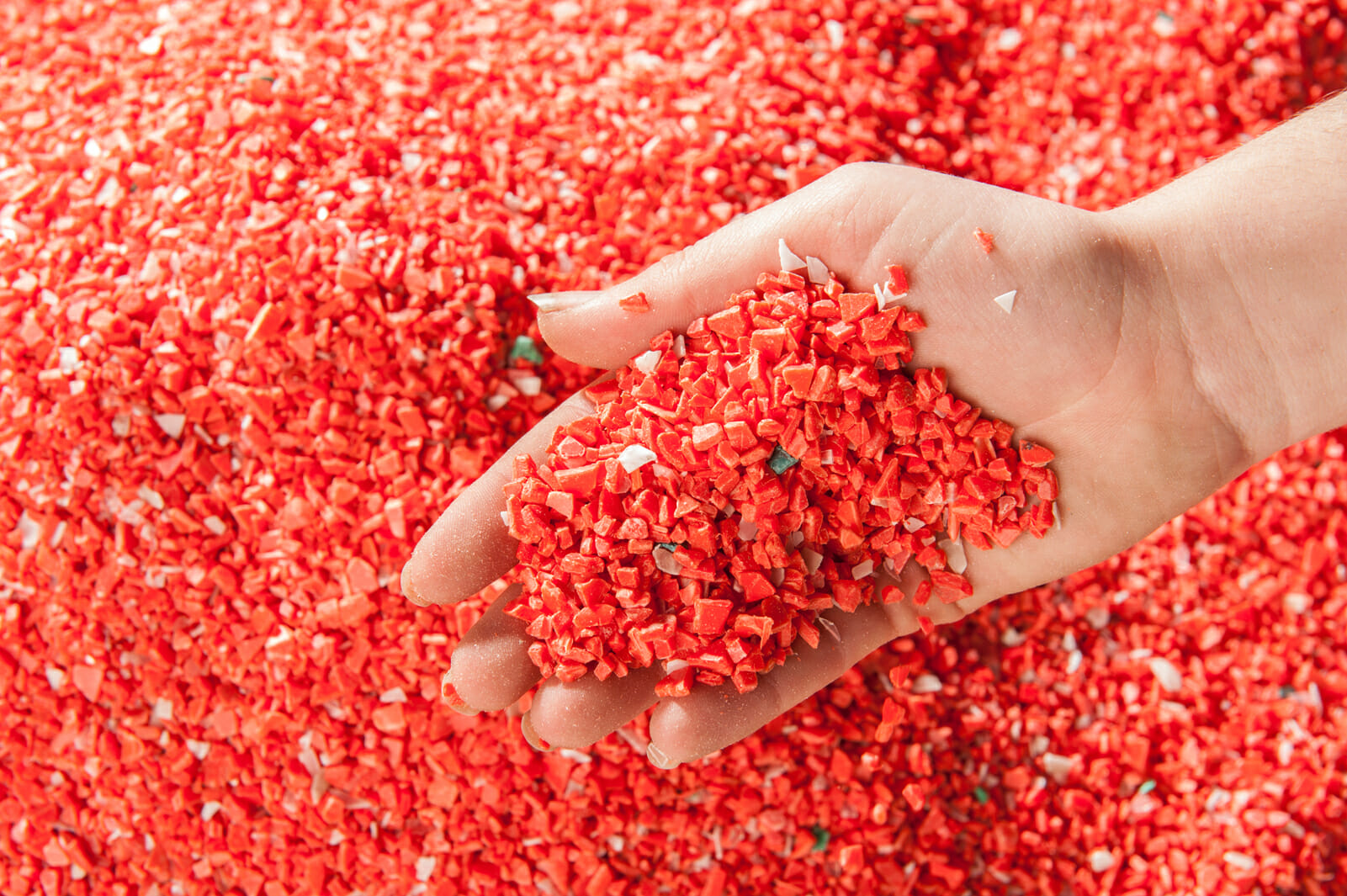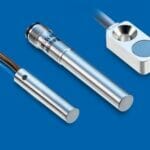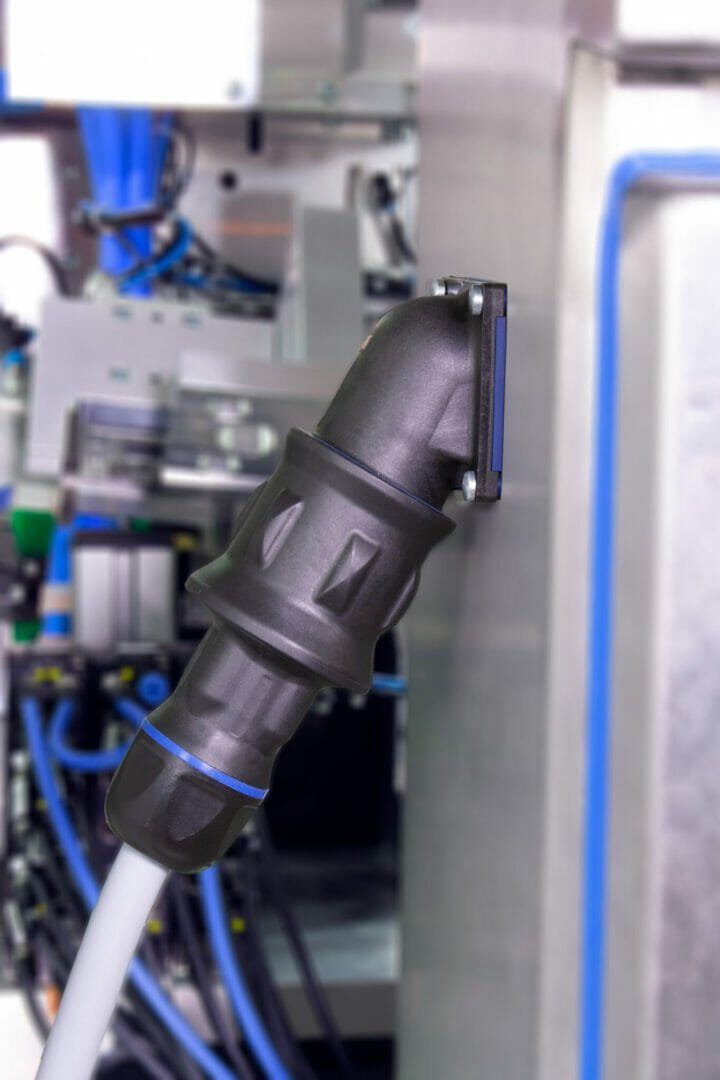The main purpose for any business is to be profitable and utilise all aspects of investment.
When you hear investment, instantly your mind is drawn to large pieces of machinery, revolutionary technology, and property, these are factors, however I am taking us back to the basics of the plastics business. The plastic polymer.
Each polymer has been on a journey, these tiny pellets are created from natural resources, and have a long life. (Plastics are made from natural materials such as cellulose, coal, natural gas, salt and crude oil through a polymerisation or poly-condensation process.) Each pellet is a form of investment.
If you think about every product that is created from plastic, it has travelled many miles, has been through hours of processing and production, and then for many it’s life is cut short and has historically been shipped on a journey to China, to landfill, or simply stacked up “as it will have a use.” Millions of plastic pellets have entered our oceans, through sewer systems, polymer creation and simple misuse.
I have worked within the plastics industry, and seen the mistakes made, however credit has to be given to the industry I work with, they are making changes, and creating what many deem a new way of doing business.
Plastic is not evil, it is lifesaving which has been more than proven, within the times of the recent worldwide pandemic. Plastics have simply been dealt a bad hand, and due to some abusing the processes, plastic had ended up in places, that it was never meant to have seen, let alone entering the food stream, or ocean bed.
An example of a business utilising every polymer and plastic off cut is Coral Products PLC, a company that has had to diversify and adapt to change since its days as a supplier of packaging for the entertainment, music, and film industry. The group supply extrusion, blow moulding and injection moulding products into a wide range of industries, including telecoms, automotive, household, food, and beauty.
This business of over 30 years has an experienced CEO, with an eye for detail, which brings onboard projects and innovations that others may overlook or deem irrelevant. Bringing staff and teams together to enable a complete in-house project from design to creation, with R and D and recycled polymer as a focus.
This business uses what others deem as waste, or simply sweep away.
An example of this was highlighted by Operation Clean Sweep, a project supported by the British Plastics Federation. Why are plastic polymers entering the rivers and oceans at this start of its journey if manufacturers are seeing each pellet as a resource and profit for the business?
At Coral Products PLC, every top and tail from blow moulding, every pellet from extrusion and injection moulding, has a place.
If it ends up on the floor, it is a waste a loss of profit for the business and does not support their circular economic business strategy.
Education is the key to success.
Staff need educating, and to be included within your business, in decisions, in processes, in investments, in expenditure, if staff are not part of the business, and are not aware of costs or polymer, how are they expected to respect the cost of that pile of plastic on the floor! Or why it should not be on the floor.
Investment is of course key, the group have invested heavily in processes and structures that can utilise the “waste resource,” a state of the art recycling facility onsite in the North East, has enabled the group to create a circular economic strategy and offer this process to customers, collection and gathering of waste plastics, whilst delivering new product and a cost effective pricing plan, has reduced costs for many LA’s and Councils and has provided an in house resource for development of new innovative products.
There are many misconceptions with regards to what can be recycled and reused as a secondary life plastic, the fable of black plastic not being recyclable, (when it’s usually down to cost,) that recycled plastic can’t be used in food products (when in-fact it can,) and plastic being the most destructive form of packaging in process, (when as it is proven, paper uses many more resources and energy, as do many other alternative polymers.)
Thinking outside of the box, (pardon the pun as Coral Products PLC create many bins, boxes, and caddy’s!) Is what Mick Wood and his team are particularly good at.
Using plastic on site keeping polymer in production, using automation and cobots to enable the up skilling of staff, innovative ideas and a fresh approach to supporting other business, all of these ways of doing business can be implemented in any business.
What do you have?
Do you have a tool that is lying dormant, that could be used to create a different product?
If you made that product in a different colour could it be used in another industry?
Is there a pile of plastic, waiting for collection that you are paying to be removed, as it simply is no use?
Why can’t your machine run another tool, be adapted, support a different industry?
Is it because change is not discussed, is the focus on the government guidelines, restrictions, boundaries being implemented?
Or is it simply due to a mindset that needs changing?
Plastic is not a dirty word, it is not a product that has no use, it is part of our everyday life, and has its place in society (although many disagree.)
We should always see our best in everything, find and use what we have to the best of our advantage, and do the best by others.
I believe the plastics industry are endeavouring to do this, it is time to show support, change minds and educate. (Oh, and market your business, I am here to help with that!)







